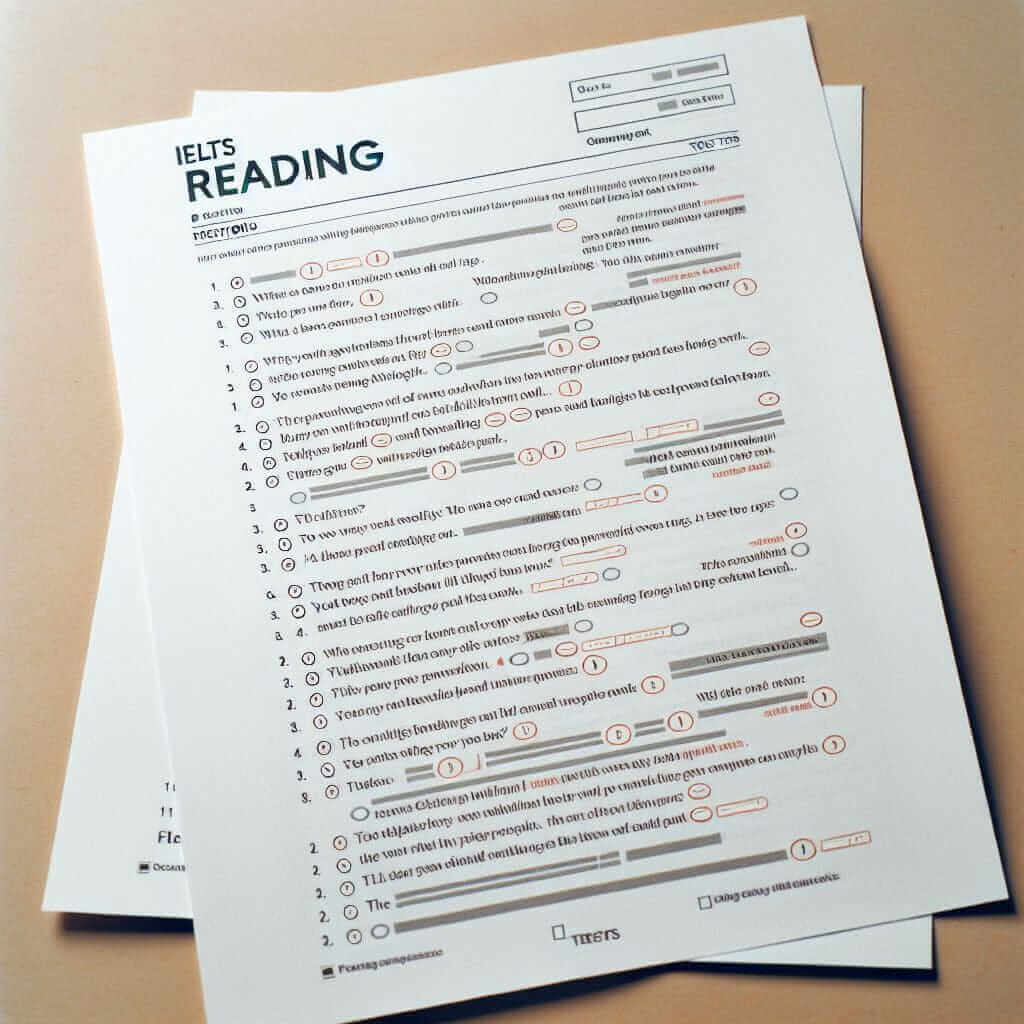The IELTS Reading test often poses a significant challenge for test-takers, even those proficient in English. It demands not only a strong vocabulary and grammatical understanding but also the ability to read efficiently and strategically under time pressure. As an IELTS tutor with over two decades of experience, I’ve witnessed firsthand the struggles students face and have helped them develop the necessary skills to excel in this section.
This comprehensive guide will delve into practical strategies and techniques to enhance your reading comprehension, ultimately leading you towards your desired IELTS score.
Understanding the Importance of Strong Reading Skills in IELTS
The IELTS Reading test assesses your ability to understand complex texts, extract key information, and identify the writer’s opinions and attitudes. A high score in this section is crucial as it significantly contributes to your overall band score, opening doors to academic and professional opportunities.
Effective Strategies to Enhance Your IELTS Reading Skills
1. Develop a Consistent Reading Habit
Cultivating a regular reading habit is paramount. Dedicate time each day to engage with a variety of English texts such as:
- News Articles: Sources like The Guardian, BBC News, or The New York Times offer exposure to diverse writing styles and current affairs vocabulary.
- Academic Journals: Explore journals related to your field of interest to familiarize yourself with academic language and argumentation.
- Fiction and Non-fiction Books: Choose genres you enjoy to make reading enjoyable while simultaneously expanding your vocabulary and comprehension skills.
2. Master Skimming and Scanning Techniques
- Skimming involves quickly glancing over the text to grasp the general idea, main topic, and overall structure. Practice identifying topic sentences and keywords in each paragraph.
- Scanning is employed to locate specific information like dates, names, or figures. Train your eyes to quickly find the required information without reading the entire text.
3. Enhance Vocabulary Acquisition
A strong vocabulary is fundamental for IELTS Reading success. Employ these strategies:
- Contextual Learning: Deduce the meaning of unfamiliar words by analyzing the surrounding context.
- Word Lists and Flashcards: Utilize IELTS-specific vocabulary lists and create flashcards to memorize new words and their usage.
- Root Words, Prefixes, and Suffixes: Understanding word roots and affixes can help you decipher the meaning of unfamiliar words.
4. Improve Time Management Skills
Time management is crucial in the IELTS Reading test. Practice these techniques:
- Allocate Time Wisely: Divide your time equally among the three reading passages.
- Avoid Spending Too Much Time on One Question: If you’re struggling, move on and return to it later if time permits.
- Practice Under Timed Conditions: Regularly simulate exam conditions to improve your pacing and accuracy under pressure.

Applying Your Skills: Example from an IELTS Reading Passage
Let’s look at an example from an actual IELTS Reading passage:
Passage Excerpt: “The discovery of penicillin, a naturally occurring antibiotic produced by certain molds, revolutionized medicine in the 20th century. Its ability to inhibit bacterial growth led to the development of numerous antibiotics, saving millions of lives.”
Question: What was the major impact of penicillin on medicine?
Answer: By skimming the passage, you can quickly identify the key information: “revolutionized medicine.” Further reading clarifies that penicillin’s ability to “inhibit bacterial growth” led to this revolution.
Tips for Achieving a Higher Score in IELTS Reading
- Read the Instructions Carefully: Understanding the question types and requirements is essential for selecting the correct answers.
- Highlight Keywords: Identify and underline keywords in both the questions and passages to focus your attention.
- Don’t Rely on Background Knowledge: Base your answers solely on the information provided in the passage.
- Check Your Answers Thoroughly: Allow time for review and to correct any potential errors.
Conclusion
Enhancing your IELTS Reading skills is an achievable goal with dedicated effort and the right strategies. By consistently practicing the techniques discussed in this guide, you’ll be well-equipped to tackle the IELTS Reading test with confidence and achieve your desired band score. Remember, persistence is key, and every step you take towards improving your reading comprehension brings you closer to success in your IELTS journey.